
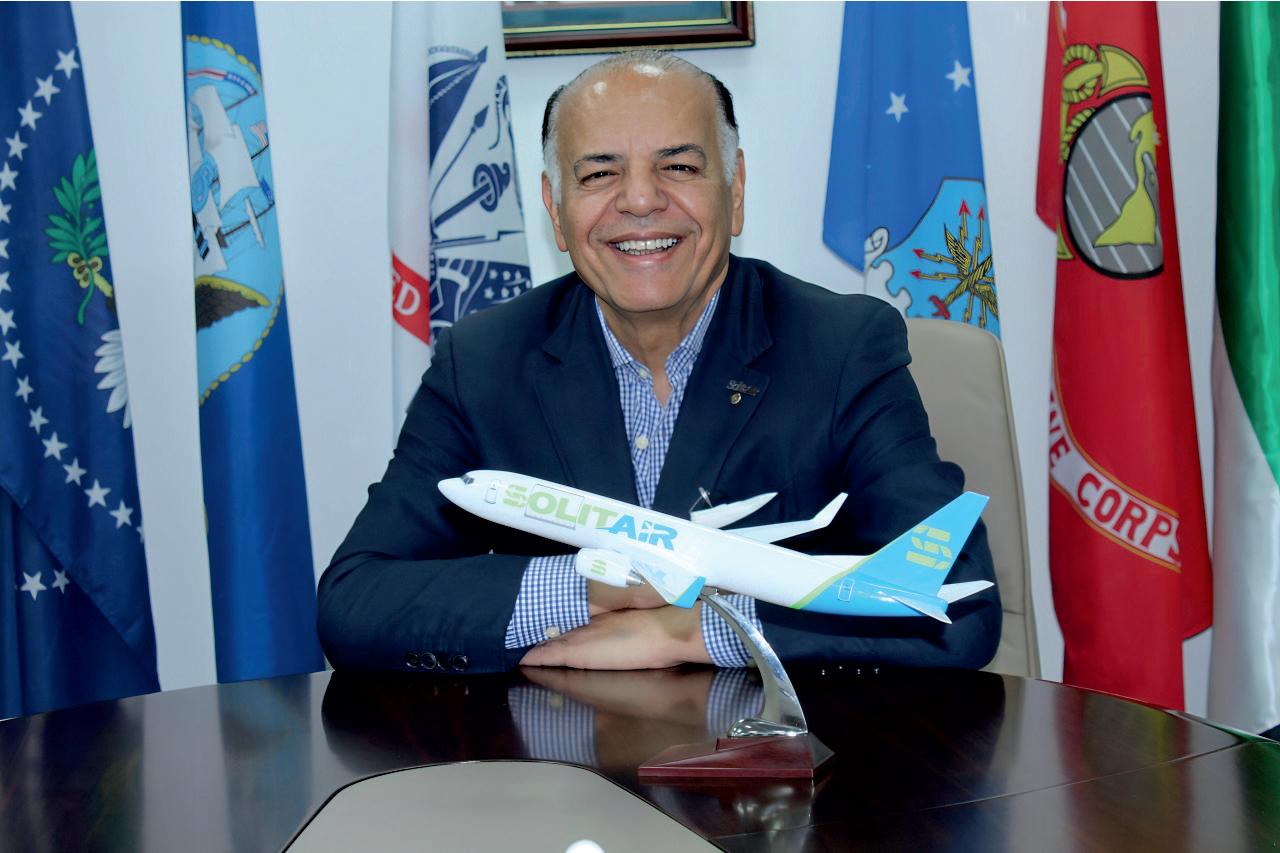







Theaviationandaerospaceindustryhasalwayssymbolizedhuman
ambition,innovation,andresilience.Fromtheearliestflight experimentstotoday’sadvancedaircraftandspaceexploration programs,thissectorhasconsistentlyredefinedtheboundariesofpossibility In2025,theMiddleEaststandsattheforefrontofthistransformation mergingasaglobalhubwhereboldvisionsmeetstrategicinvestmentsand technologicalbreakthroughs.
ThisspecialeditionofEnterpriseReviewtitled, Middle East’s Most Admired Leader Shaping the Future of Aviation & Aerospace, 2025, celebratesanindividualwhoseleadershiptranscendstraditionalbenchmarks ofsuccess.Beyondsteeringgrowthandprofitability,thisleaderexemplifies arareblendofforesight,adaptability,andcommitmenttoexcellence.Their visionreflectstheregion’saspirations,notonlytobuildworld-class infrastructureandtechnologiesbutalsotoinspiregenerations,strengthen globalconnectivity,andcontributetosustainableprogress.
Aviationandaerospacearenolongerjustabouttransportationor exploration;theyareaboutconnectingcultures,enablingcommerce,and unlockingopportunitiesthatwereonceunimaginable.Theleaderfeaturedin
thiseditionhasplayedapivotalroleindrivingthesetransformations usheringindigitalization,sustainability,andinnovationascore principlesoftheindustry’sfuture.
Throughthisfeature,weaimtoprovidereaderswithanintimate understandingoftheleader’sjourney,thechallengesfaced,thevalues upheld,andthestrategiesthatcontinuetosetnewstandardsforthe industry.Moreimportantly,wehighlightthehumansideofleadership: theabilitytoinspiretrust,nurturetalent,andembracechangewith courageandclarity.
AstheMiddleEastcontinuestoriseasaglobalaviationandaerospace powerhouse,itisvisionaryleadersliketheonehonoredherewho ensurethattheskiesaheadremainfilledwithpromise,progress,and purpose.
14
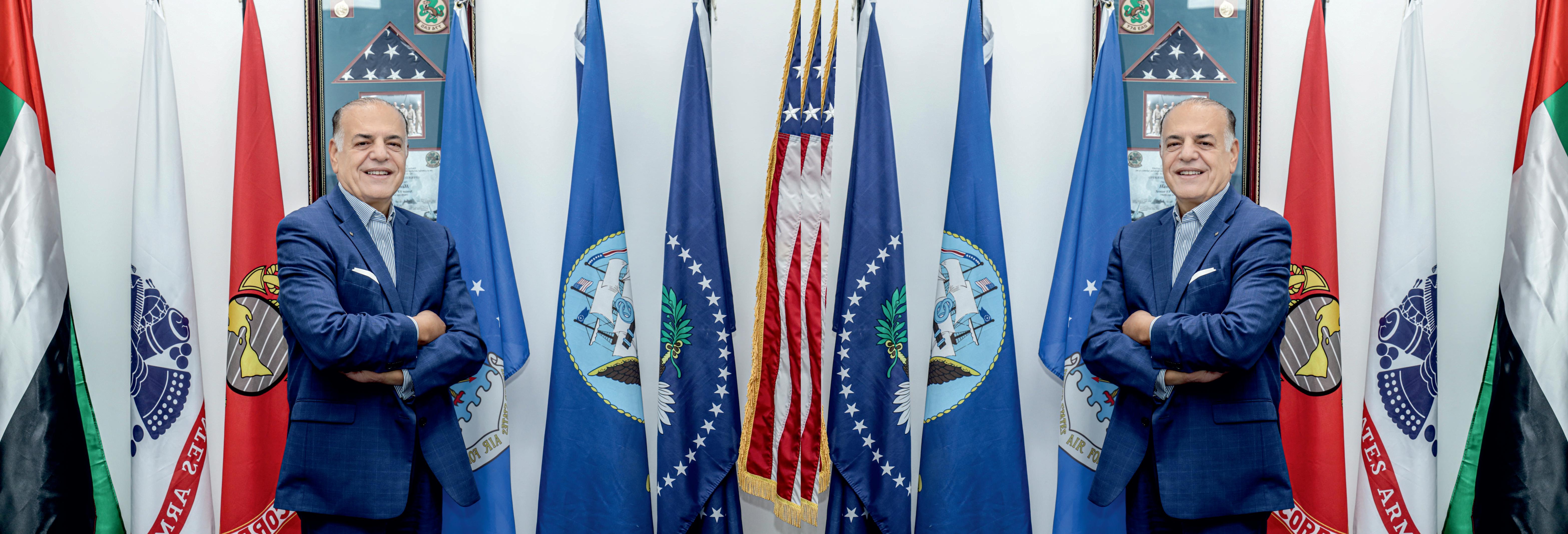
Redening Speed, Service, and Connectivity in Global Air Cargo
The Signature story Industry Insights
18 Engineering Excellence Unveiling the Secrets of Aviation & Aerospace Technology
Bridging Technologies
The Intersection of Aviation and Space Exploration

Merry
D' Souza Editor-in-Chief
Managing Editor Bill Limbert
Assisting Editor Joe Lee


www.twitter.com/enterprisereview.com/ www.facebook.com/enterprisereview.com/
Visualizer Stewart Jonas
Art & Design Director Robin Clarck
Associate Designer Authur Watson DESIGN


Vice President Jil Kendal
Asst. Vice President Kevin Johnson
Asst. Manager Robert Hanson
Business Development Executive Thomas E.
Email sales@enterprisereview.com For Subscription www.enterprisereviewmedia.com

Technical Head Andrea Jackson
Technical Specialist Mike Anderson
Technical Consultant Oliver Sutton TECHNICAL SME-SMO
Research Analyst Wendy J.
SEO Lead Tasha L.
August, 2025
Copyright © 2025 enterprisereview, All rights reserved. The content and images used in this magazine should not be reproduced or transmitted in any form or by any means, electronic, mechanical, photocopying, recording or otherwise, without prior permission from enterprisereview Reprint rights remain solely with enterprisereview.

Redening Speed, Service, and
SolitAir Founder and CEO
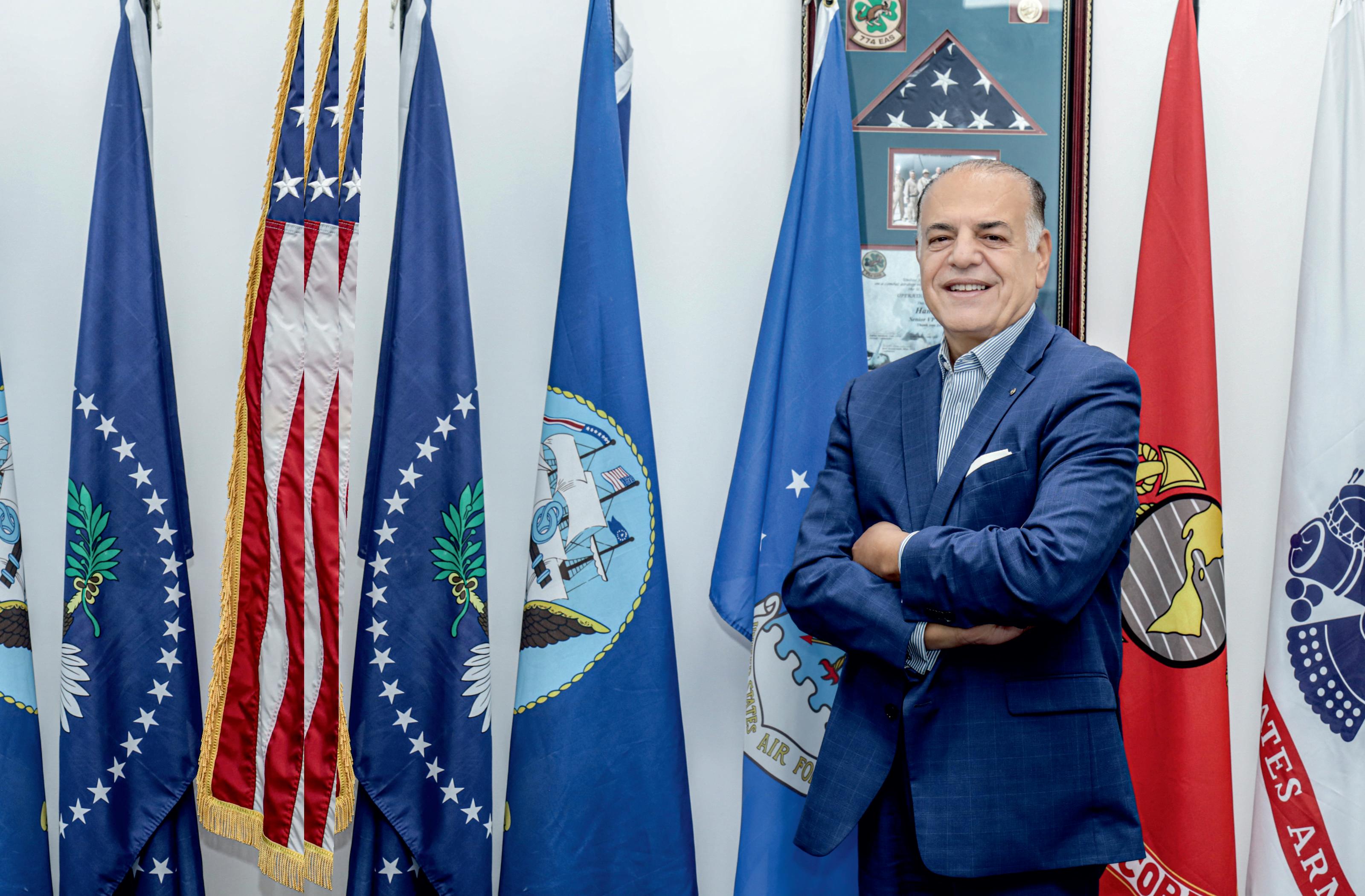



As the world remains more connected than ever, seamlesslogisticsandeffectiveaircargoservicesare cuttingtheedgeinexpeditinginternationaltradeand economic growth This challenge necessitates vision, resolve, and an unfaltering passion Hamdi Osman, SolitAir's FounderandCEO,possessestheseinplentyasheleadsthe UAE's express cargo airline with services along key trade routesintheGlobalSouth.Hisdeepinsights,strategicvision, and visionary leadership are defining the regional air cargo logistics landscape, enabling faster connectivity between Africa,theMiddleEast,theIndianSubcontinent,andCentral Asia.
Hamdiboastsmorethanfourdecadesofworkexperienceinthe logistics and aviation sector with a track record of steady rise andimmensecontribution.HamdijoinedFedExin1978,where hestartedworkingasatruckcleaner Withsheerhardworkand greatbusinessacumen,Hamdiroseinthesubsequentyearsto thepositionof Senior Vice President,managingMiddleEast, Europe,Africa,andtheIndianSubcontinentoperations.
Throughouthiscareer,Hamdiwasinstrumentalinsurmounting logistics hurdles brought about by geopolitical issues like the GulfWar.Hewastheinnovatortoinitiatemajorcargocarriers likeBlueDartandFalconExpressCargothatrevolutionizedair freightconnectivityintheregion Thisexposuredevelopedhis profound knowledge of intricate logistical networks and operationalexcellence.
In2012,Hamdimovedoverintothegrowthtechstartupsector throughtheSolitaireGroup.Hisinvestmentsendedupbeingin Healthtech,Fintech,Foodtech,EdTech,andlast-miledelivery startups,alltodrivegame-changinginnovation Nevertheless, hisinterestinaircargoandlogisticsremainedunchecked.
The COVID-19 pandemic disruption globally in 2020 profoundlyreiteratedtheroleofaircargoinmaintainingglobal supply chains. Realizing a definite shortage in regional cargo services, Hamdi decided to re-enter the field, merging his logistics expertise and investing acumen with the startup of SolitAir
Constructing SolitAir: Vision, Challenges, and Determination
SolitAir was born out of Hamdi’s vision to revolutionize regionalaircargologisticsbyconnectingunderservedmarkets acrosstheGlobalSouthwithexpress,dailyscheduledflights In the first period, the airline focuses on linking the Gulf
CooperationCouncil(GCC),Africa,theIndianSubcontinent, and other regions, providing speed, reliability, and scalable servicesthattraditionalcarriershadnotprioritized.
It was difficult to get a cargo airline going, particularly in a marketascomplicatedastheoneHamdiwastryingtoenter The firm encountered hard adversity from a very early point The greatestdisappointmentarrivedintheshapeofaninstitutional investor who walked away from committed funds at the eleventh hour, jeopardizing the launch. With stunning resilience and unshakable belief in his dream, Hamdi took someextremepersonalsacrifices—sellingandremortgaging familyassets—toraise$35millioninstart-upcapital.
Currently,SolitAirisadvancingtowarda$40millionSeriesB funding round to expand its fleet and operational network. Despite the earlier challenges of an incremental aircraft acquisition schedule where the initial plan to launch with three aircraft was delayed, Hamdi’s leadership ensured the company’sadaptabilityandsustainedgrowth.Today,SolitAir operates 5 BOEING 737-800 CF Two additional BOEING 737-800CFwilljoinitsfleetbyendofAugust2025,leading tototalnumberof7aircraft.Theplanistohaveafleetof10to 12BOEING737-800CFbyendof2025.
Leadership Philosophy: Listening, Communication, and Integrity
At the center of Hamdi's leadership philosophy is an irrepressiblepassionforlisteningandopencommunication He credits80percentofhissuccessasbeingabletolistenwellto customers,employees,andstakeholders.Anexpansiveeffortto

"SolitAir’s success is built on a foundation of trust, innovation, and unwavering commitment.”
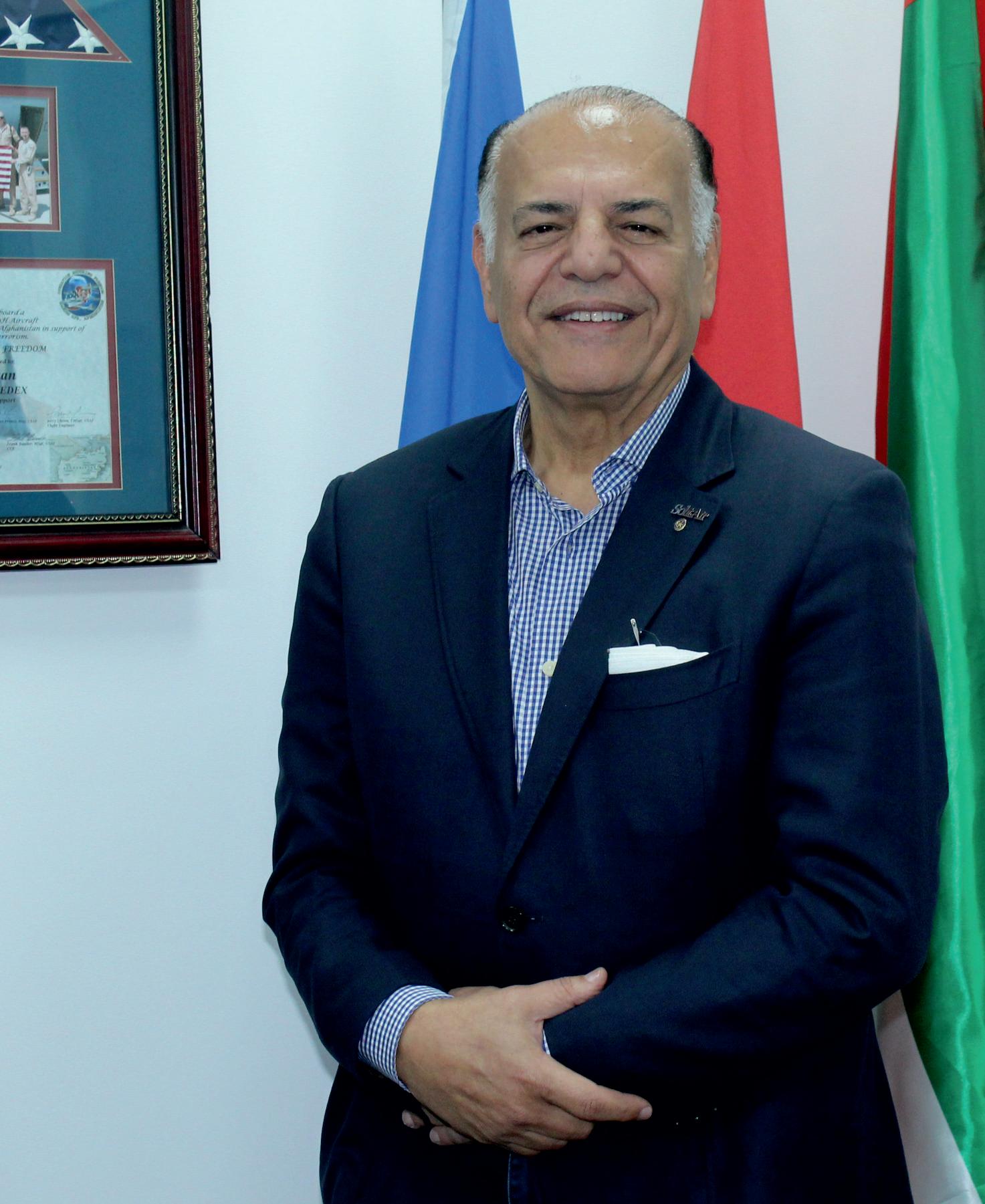



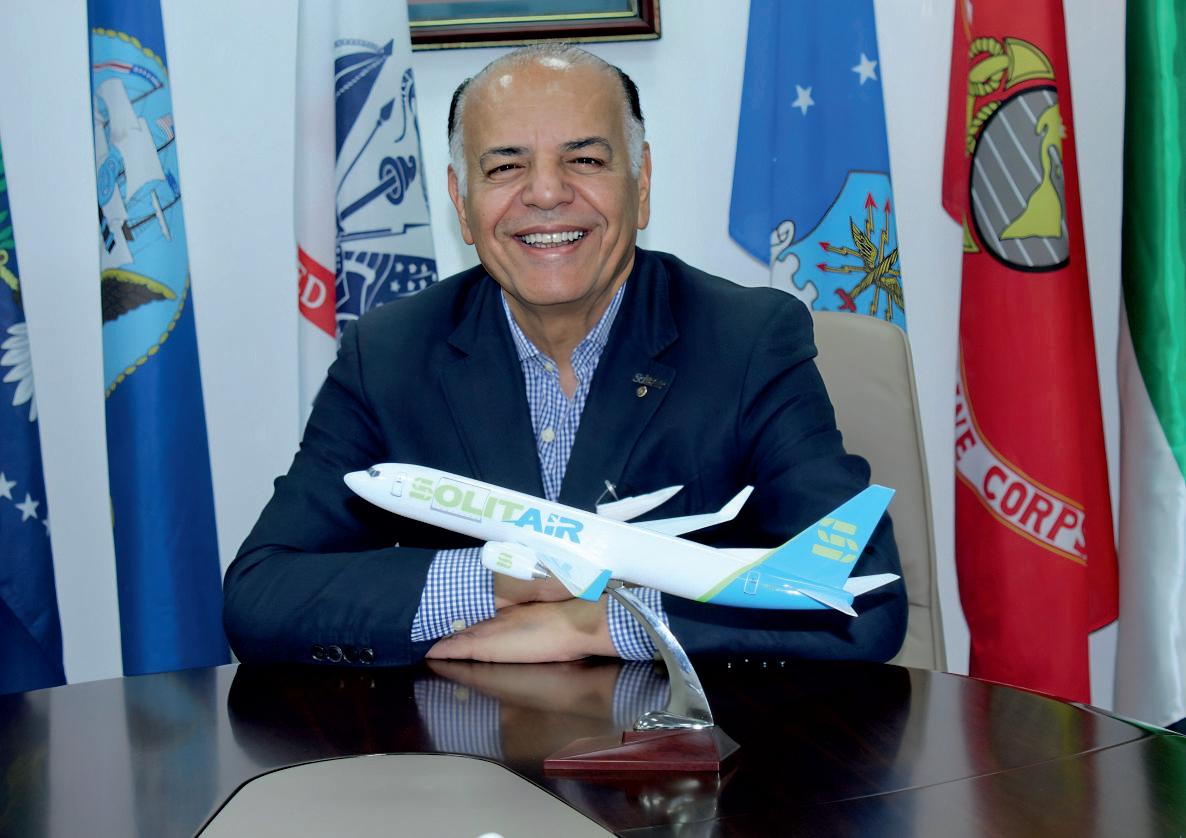


"Listening is the cornerstone of effective leadership and wise decisionmaking.”


listen to all forms a guard against narrow decision making, thereby increasing strategic alignment as well as teamworkorientedorganizationalculture.
Hamdi’s open communication channels encourage feedback and continuous improvement, nurturing a workplace built on trust and mutual respect Regular team meetings, business updates,andopenforumsareintegraltohisleadershiptoolkit, fostering transparency and accountability throughout SolitAir’soperations.
Guided by the adage, "In God we trust; everything else we verify,"Hamdibalancesasolidethicalcompasswithscrupulous duediligence Eachbusinessdecisionisseriouslyweighedwith equal regard for data-driven analysis, strategic foresight, and operational practicality. This symbiotic mixture of visionmindedthinkingandstreet-levelverificationhasbeenthekey toSolitAir'sconsistentprogress.
Under the leadership of Hamdi, SolitAir is a pioneer in adopting technology to enhance cargo operations. To give customers maximum visibility and transparency on their cargoesthroughoutthejourney.Ithighlyincreasesreliability and customer confidence. It highly increases reliability and customerconfidence.
From Al Maktoum International Airport (DWC), SolitAir drawsoncutting-edgeautomatedcargohandlingsystemsatits heart, providing efficient loading and unloading. Apart from minimizing turnaround times, these technologies also reduce handling errors, with guaranteed accuracy and efficiency of operations.
Dataanalysisisalsowidelyutilizedintheprocessofoptimizing flight routes, cargo capacity management, and scheduling deliverytotheiroptimallevels Theinterrelateddigitalsystems of the airline facilitate smooth online reservations, tracking shipments, and cargo management providing the best customerexperiencewithoptimizedbusinessfunctions. In alignment with its sustainability commitment, SolitAir makes investments in clean technologies like fuel-saving airplanes as well as electric ones This initiative reduces environmental effects without compromising the level of service,makingSolitAir'sasociallyresponsibleindustryleader inanindustryhistoricallyconstrainedbyitscarbonlegacy.
NavigatingChallenges:ResilienceintheFaceofAdversity
SolitAir began with surprising operational delays, such as postponedaccesstoaircraft Theinitialintentionofintroducing
three planes at the beginning was thwarted by the reality that therewasonlyoneplaneavailablethen,withtherestarriving monthsapart Thisdidnotdiscouragetheteam,though.
Hamdifosteredacultureofresilience,encouraginghisteamto harness their industry knowledge and agility to explore alternative business models and routes. This adaptability proved critical in sustaining momentum and building a solid foundationforfutureexpansion.
The ability to navigate such hurdles underscores the strength anddedicationofSolitAir’sleadershipandworkforce values deeplyembeddedbyHamdi’ssteadyhand
Recognizing that no airline can exist on its own, Hamdi has prioritized building strategic alliances to maximize SolitAir's operationaleffectivenessaswellasmarketpresence Alliances extendalongseveraldimensions:
• Maintenance,Repair,andOperations(MRO):Alignment with industry-leading MRO software solutions enables SolitAir to plan aircraft maintenance, minimize downtime, and manage costs maximizing aircraft availabilityandreliability.
• SafetyandCompliance:Harmonizationofbestsafetyand quality management systems ensures strict compliance with rigorous regulatory requirements, simplifies documentation, and enhances the process of managing risks, which are critical for fleet growth and operational success.
• Airworthiness and Flight Planning: Collaborations with specialist companies enhance safety variables, operational productivity, and support for sustainable growth
• Cargo Sales Networks:Strategicpartnershipswithcargo sales agents in fast-growing markets like India expand SolitAir'sreach,optimizecapacityutilization,andcreate newsourcesofrevenue.
By leveraging these partnerships, SolitAir is responsive and flexible,poisedtoaddressthechangingneedsofworldwideair cargologistics
Hamdi's strong conviction that human beings are the most important factor for a business to be successful permeates every detail of SolitAir corporate culture. Reflecting on his fourdecadesatFedEx,Hamdilooksbackonpromotinga


Aviation and aerospace have been the pinnacle of man's aspirationtoflyhighfordecades,transformingthewaywe travel, communicate, and explore the cosmos. From the historic giant leap of history's first powered flight to our current attempts to lead ourselves to distant planets, the industry hurtles at breakneck speeds The most sophisticated aeronautics and space technology are no engineering feats; they form the backbone of global connectivity, defence, scientific progress, and economic development Aerodynamics and materials science merge with thrust,avionics,andinformationtechnologytopropelflight,increase security,andincreaseefficiency.
Development of flight was an initial process of crude imitations of nature The pioneers were observing the flying of birds and trying someformofimitationofwhattheyweretryingtodobutwithoutor partly succeeding.The 1903Wright brothers' accomplishment was the impetus, and it proved that powered, controlled, and sustained flightwasnotonlypossiblebutalsopractical.Theysetthedooropen to a series of unparalleled improvement in power, material, and design The half-century-by-half-century innovation observed ceromancydevelopfromaircraftconstructedofwoodtosturdymetal aircraftcapableofcrossingoceansandcontinents
Contemporary aviation was the result of half-century-by-halfcenturyinnovation,whereeachsubsequentstepwasinformedbythe lessonofhistory.Jetengines,whichwerecreatedduringWorldWar II,transformedspeedandefficiency Compositematerialswereused to decrease aircraft weight but provide it with additional strength Advances in avionics gave more reliable navigation and communications aids that transformed flying by making air travel safe and dependable. Precision in science and engineering today characterizeairlinersthattransporthumanbeingsthousandsofmiles acrosstheglobeinhours.
Atthesametime,spacetechnologybrokeopenthebarriers The launchofSputnikin1957kickedoffaspaceracethatproduced unprecedented miracles like the Apollo moon landing and constructing space stations With each success, there was a technologyjump,fromrocketpropulsiontolifesupport Aside fromexploration,satelliteswentintocommunications,weather, navigation, and monitoring the Earth's environment, transformingaerospacetechnologyintodailyliving.
Moonshotchasecontinuestospurinnovation Theindustryand governmentnowcollaboratetoconstructreusablerockets,and space travel is more affordable Emerging propulsion technologies like nuclear propulsion and ion engines will doublehumanandrobotmissionstoMarsandbeyondtodouble today's distance. The use of artificial intelligence in space systems grows autonomy since spacecrafts can feel the surroundings and adapt to unforeseen challenges Those are abilities which attest to the pioneering ability of aerospace technologyforman'sprogressinspace
Presently, aviation and aerospace industries have a twin mandate: to provide more mobility and exploration demands while reducing their footprint on the environment The war today is between innovation and sustainability Electric propulsion, hydrogen fuel, and hybrid propulsion are being tested by engineers to reduce emissions from aircraft Aerodynamics like blended wing body aircrafts are targeted towards making the plane efficient by reducing drag. Digital technologies like real-time flight optimization and predictive maintenance decrease operation cost and fuel consumption at thesametime Evenspacetravelischangingwithsustainability asoneofthedrivers
Off-spacecraft recycling of components, in-orbit fueling, and space construction of infrastructure on alien objects are ideas that encompass the industry's historical emphasis on sustainability Closed-looplifesupportwillbeappliedwhereby nothingisdiscardedandassetsarereusedtothemaximumfor enduring human presence on Mars or the Moon Additive manufacturing, robotics, and frontier technologies enable habitats to be printed locally using indigenous materials and minimize ground-based supply chains' reliance. Such technologies are dedicated to propelling man further to the responsible discovery where ambition will be ahead of stewardship
Flight and aeronautics are human innovation's never-say-die attitude. From infancy of a weak airplane to highly advanced spacecraft, each innovation opened new doors, inspiring generationsofdreamers,scientists,andengineers Theindustry began from raw utilitarian transportation commerce to the mechanism of global connectivity and unfurling the space secret It is driven at its core by a combination of scientific gravitas, visionary imagination, and pragmatism that resists constraint militantly. Leading the advance to the future are exploration, digitalization, and sustainability that will be the centeroftheindustrystrategy.Thesynergisticpowerofcleaner engines, advanced materials, and artificial intelligence will defineflyingascleanerandmoreefficient Inthisventure,the questfordiscoveringandestablishingcoloniesonotherplanets willcarryhumanbeingsbeyondtheconfinesofEarth,penning new chapters of scientific attainment and technological advancement.Inopeningthemysteriesofflightandthescience of the universe, we don't merely overcome flight but catch a glimpseofman'sendlesspotentialtodream.







Theworldsofaviationandspaceexplorationhavealways been closely connected, though they may seem like separate frontiers Aviation, which revolutionized humantravelwithinEarth’satmosphere,laidthefoundationfor the technologies, skills, and imagination that made space explorationpossible.Today,thesetwofieldsareconvergingmore than ever, fueled by advancements in technology, a growing commercial space sector, and the shared goal of pushing humanitybeyondconventionallimits.
The intersection of aviation and space exploration is no longer justasymbolicphraseitisarealityshapingthefutureoftravel, research,andinnovation
ASharedLegacyofInnovation
Thebirthofaviationandspaceexplorationshareacommontrait: the courage to push boundaries The Wright brothers’ first poweredflightin1903notonlymarkedthedawnofaviationbut alsosetthestageforhumanity’slargeraspirations Lessthan70 yearslater,astronautslandedontheMoon anachievementthat would not have been possible without the progress made in aviationengineering,aerodynamics,andmaterialsscience.
Bothfieldsembodythehumandesiretodefygravityandredefine what is possible Engineers, scientists, and visionaries have consistentlyappliedknowledgefromonedomaintoenhancethe other For instance, the development of high-performance jet engines contributed to rocket propulsion systems, while spacecraftnavigationhasinfluencedmodernaviationavionics.
TechnologyattheCrossroads
Theintersectionofaviationandspaceexplorationismostvisible in the technologies that overlap Hypersonic flight, reusable rockets, and advanced propulsion systems are examples of innovationsthatblurthelinebetweenairandspacetravel
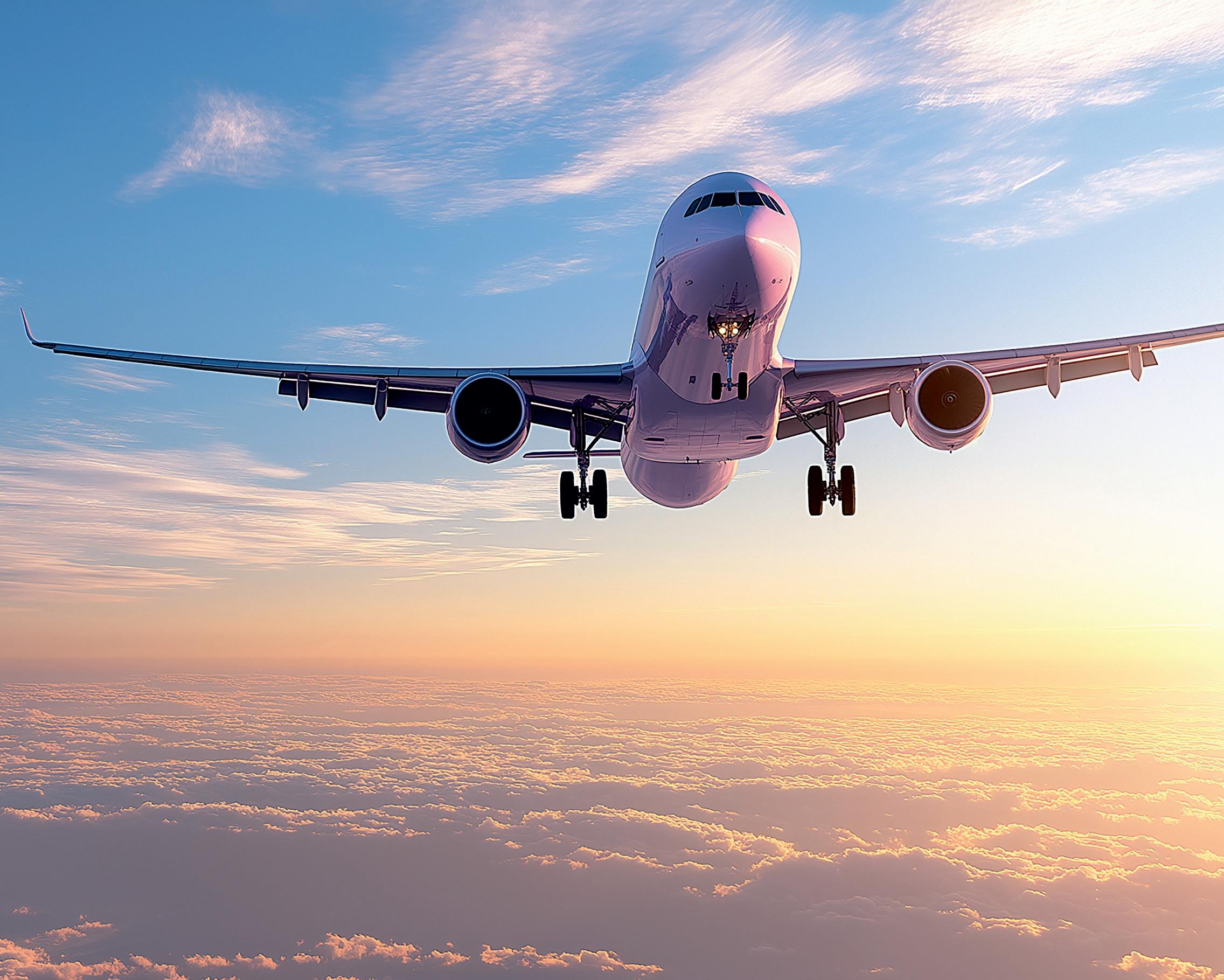

• HypersonicFlight:Aircraftcapableoftravelingatspeeds beyond Mach 5 represent a fusion of aviation and space technologies Thesevehiclesnotonlypromiserapidglobal travel but also serve as testbeds for spacecraft re-entry systems
• ReusableLaunchSystems:CompanieslikeSpaceXand Blue Origin are using aviation-inspired engineering principles to design rockets that land and take off like aircraft,dramaticallyreducingthecostofspacetravel.
• Advanced Materials: Lightweight composites, heatresistant alloys, and aerodynamic designs developed for aircraft are now being applied to spacecraft, ensuring durabilityinextremeconditions
These overlapping advancements highlight that innovation in onesectordirectlyfuelsprogressintheother.
One of the most exciting outcomes of this convergence is the dawn of commercial space travel Aviation once transformed the world by shrinking distances and making global connectivitypossible Today,spaceexplorationisfollowinga similartrajectory.Privatecompaniesareracingtomakespace tourism a reality, using principles borrowed from aviation to enhancesafety,comfort,andaffordability.
Suborbitalflights,forexample,allowpassengerstoexperience afewminutesofweightlessnessandseeEarthfromtheedgeof space These flights are designed with aircraft-like systems, blendingtheexpertiseofaviationengineerswiththeambitions ofspaceentrepreneurs.Inthelongrun,commercialventuresat this intersection may lead to intercontinental flights that cut travel time from hours to minutes by skimming the edge of space
The intersection of aviation and space exploration is not only aboutscienceandtourism;italsocarriesstrategicimportance. Governments worldwide recognize the value of aerospace dominance. Space-based surveillance, satellite communication,andhigh-altitudeaircraftarecriticaltodefense systems Research into spaceplanes vehicles capable of operatingbothinEarth’satmosphereandinorbit highlights how closely aviation and space technologies are being integratedforsecurityandnationalinterest.
Beyondtechnologyandstrategy,aviationandspaceexploration carryaprofoundhumanimpact Thesefieldsinspirecuriosity,
creativity,andresilience.Everyleapinaviationmadetheworld smaller,moreconnected,andmoreaccessible.Everymilestone in space exploration has expanded our sense of wonder and remindedusofhumanity’spotential
Pilots and astronauts often share a similar mindset: precision, discipline, and the courage to navigate the unknown Their achievements inspire young minds to pursue science, engineering,andexploration,fuelingacycleofdiscoverythat benefitsallofhumanity.
Despitetheopportunities,challengesremainattheconvergence of aviation and space exploration Environmental concerns aboutemissions,thesafetyofhigh-speedandspaceflights,and the ethical implications of space commercialization need thoughtful solutions. Moreover, international cooperation is essentialtoensurethattheadvancesmadeinonenationdonot create divisions but instead contribute to shared human progress
Looking ahead, the lines between aviation and space explorationwillcontinuetoblur.Thenextgenerationofaircraft may operate seamlessly between the skies and outer space ImagineboardingaflightfromNewYorktoTokyothatbriefly leavesEarth’satmospheretoarriveinjusttwohours Similarly, lunar bases and Mars missions may rely on aviation-inspired dronesandaircrafttonavigatealienterrains.
Thevisionofanintegratedfrontieriscloserthanever,wherethe principles of aviation meet the possibilities of space. This synergypromisesnotonlytechnologicalbreakthroughsbutalso aneweraofconnectivity,exploration,andhumanachievement
Theintersectionofaviationandspaceexplorationisatestament to human ambition and ingenuity. What began as separate pursuits flying within Earth’s skies and venturing into the cosmos are now converging into a shared journey This partnership of knowledge and innovation is redefining travel, expandinghorizons,andinspiringgenerationstolookupward Aswestandatthiscrossroads,onetruthisclear:thefutureof humanity lies not in choosing between aviation and space exploration,butinembracingtheirpowerfulintersection.



www.enterprisereviewmedia.com
